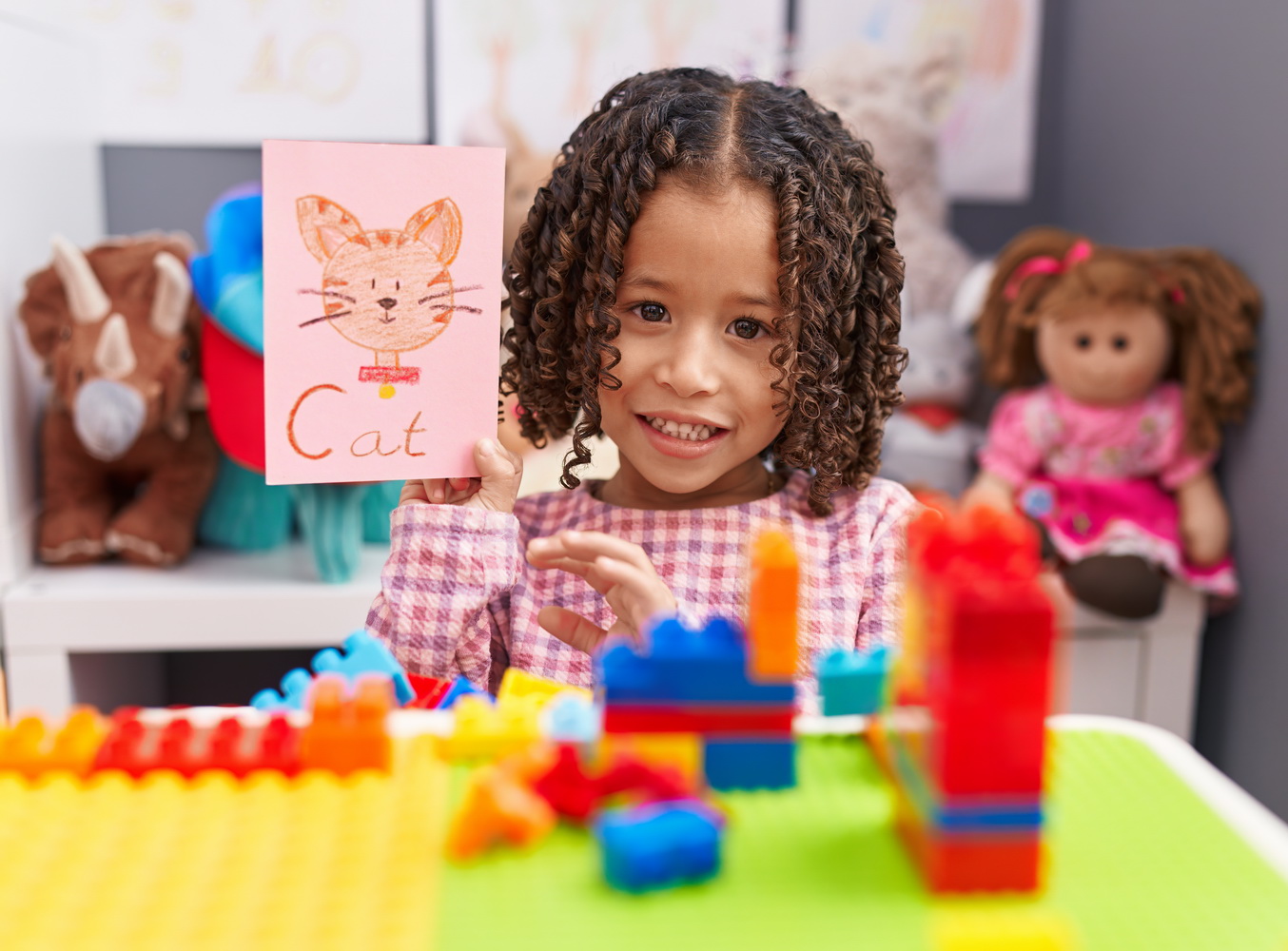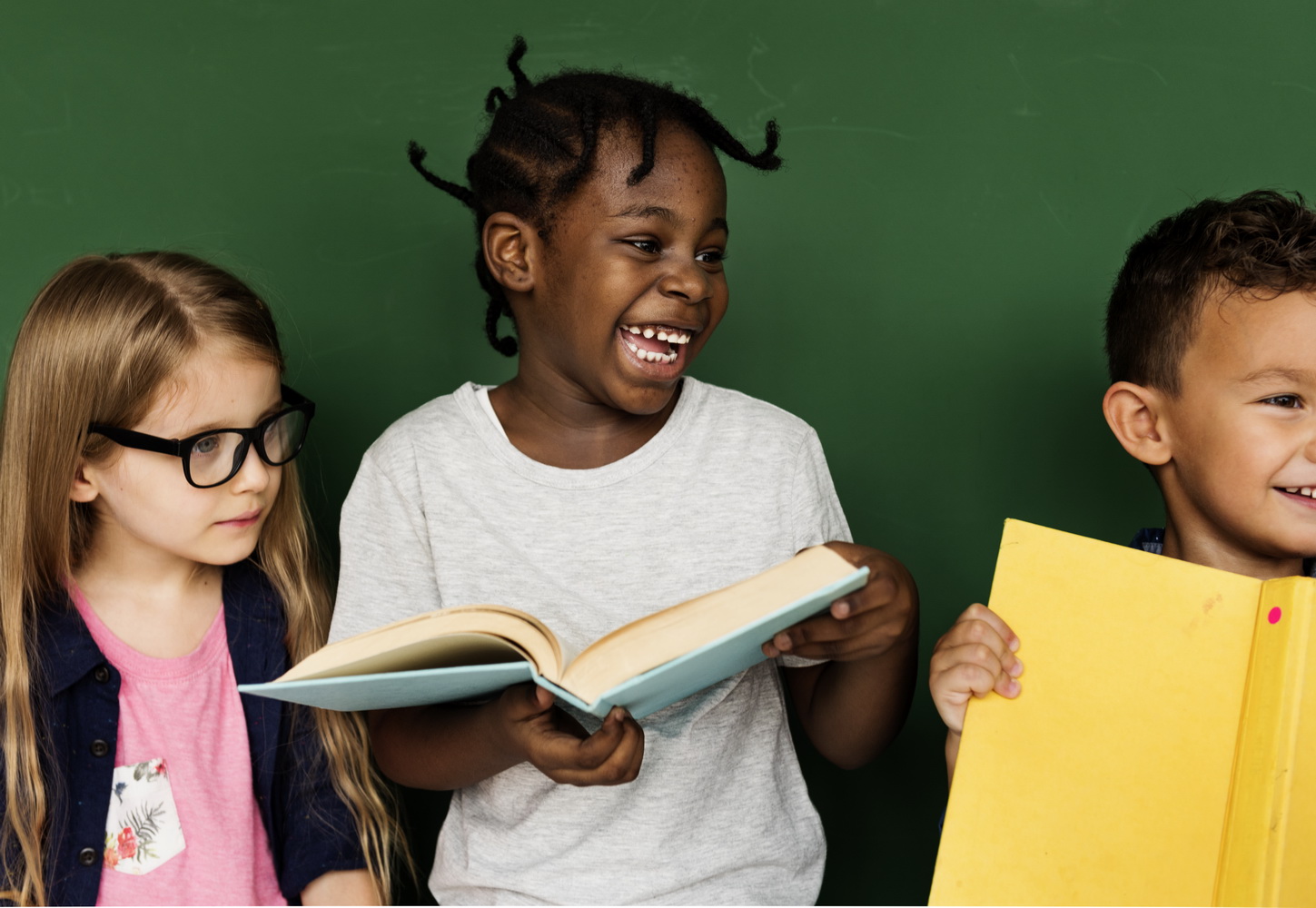Problem-Solving Skills Normal Building Vocabulary Worksheets for Ages 3-7
5 filtered results
-
From - To
Discover our "Problem-Solving Skills Normal Building Vocabulary Worksheets" designed specifically for children ages 3 to 7. These engaging worksheets integrate essential problem-solving exercises with vocabulary enhancement to help young learners develop critical thinking skills and language abilities. Each worksheet encourages children to navigate puzzles, understand contexts, and explore word meanings while fostering confidence in their problem-solving capabilities. Ideal for classroom use or home learning, these resources are crafted to support your child's cognitive development in a fun and interactive way. Boost your child's vocabulary and problem-solving skills today with our easy-to-use, printable worksheets that make learning enjoyable!
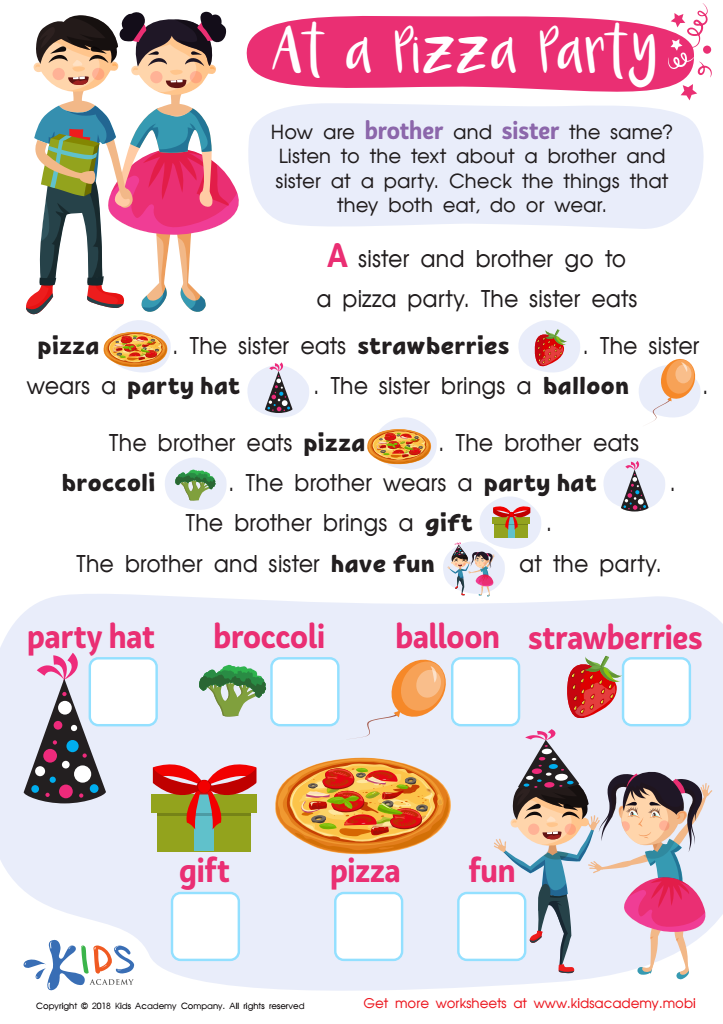

At a Pizza Party Worksheet
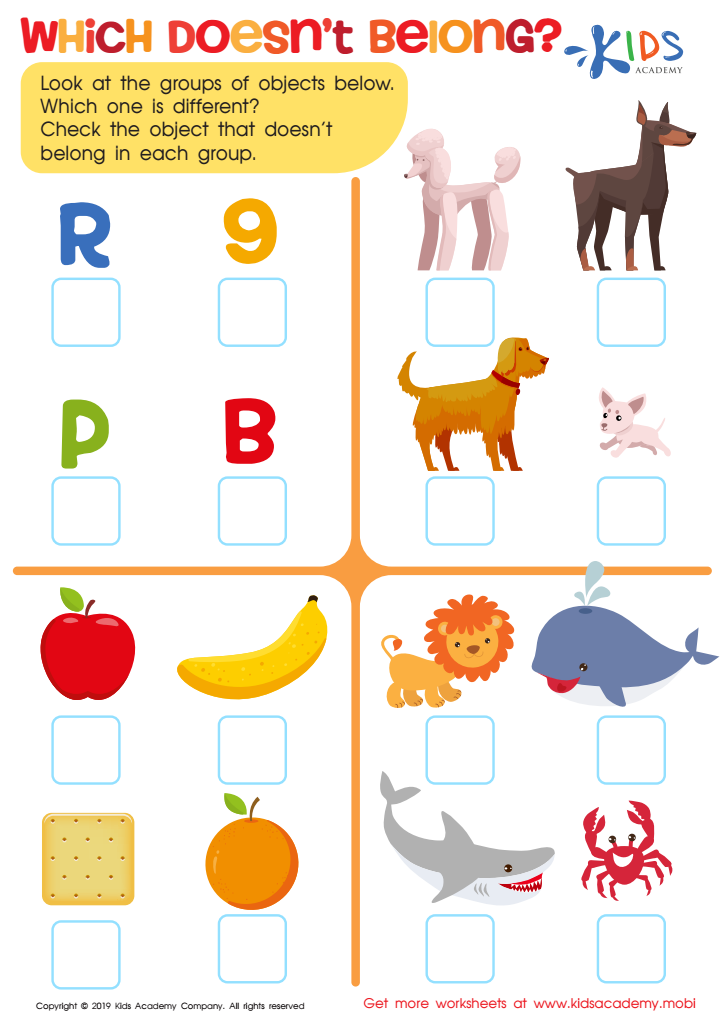

Which Doesn't Belong? Worksheet
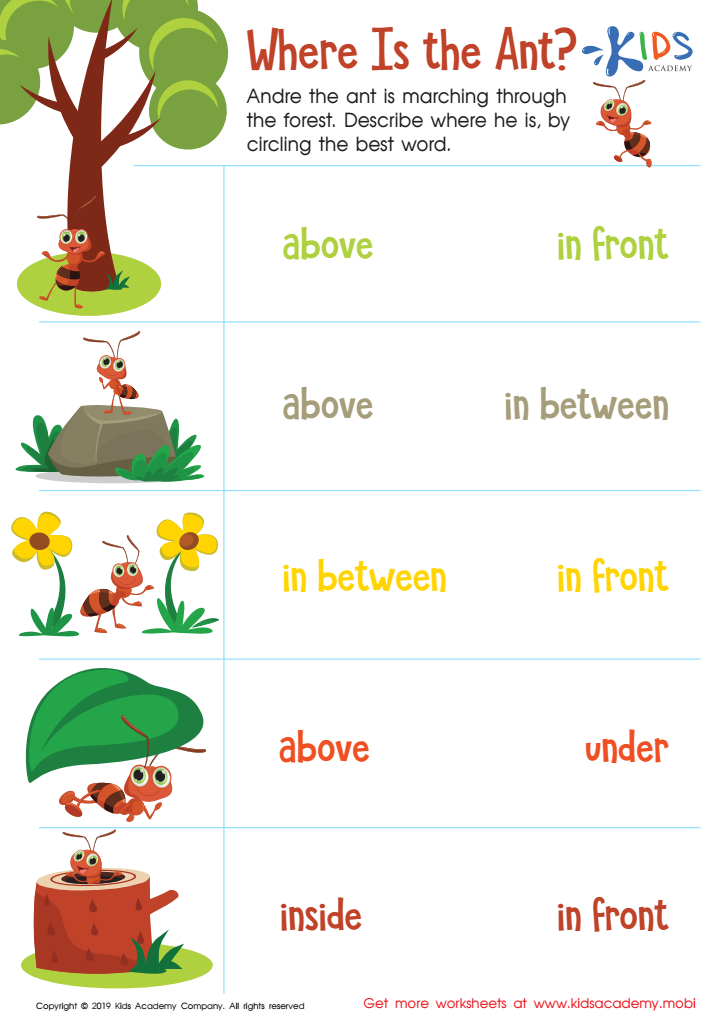

Where Is the Ant? Worksheet
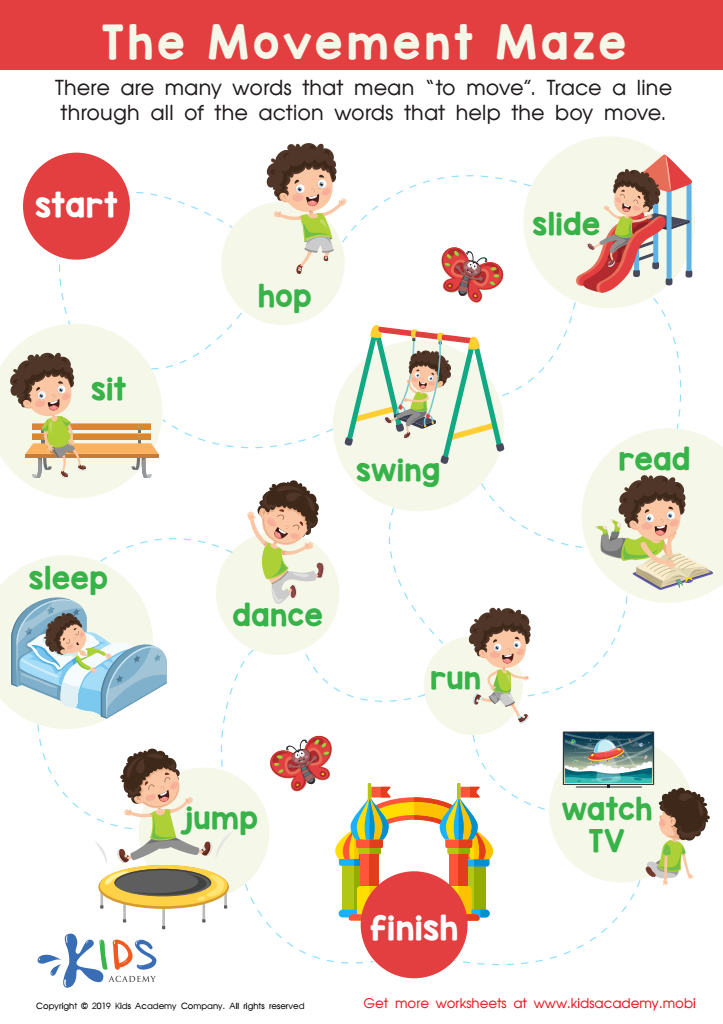

The Movement Maze Worksheet
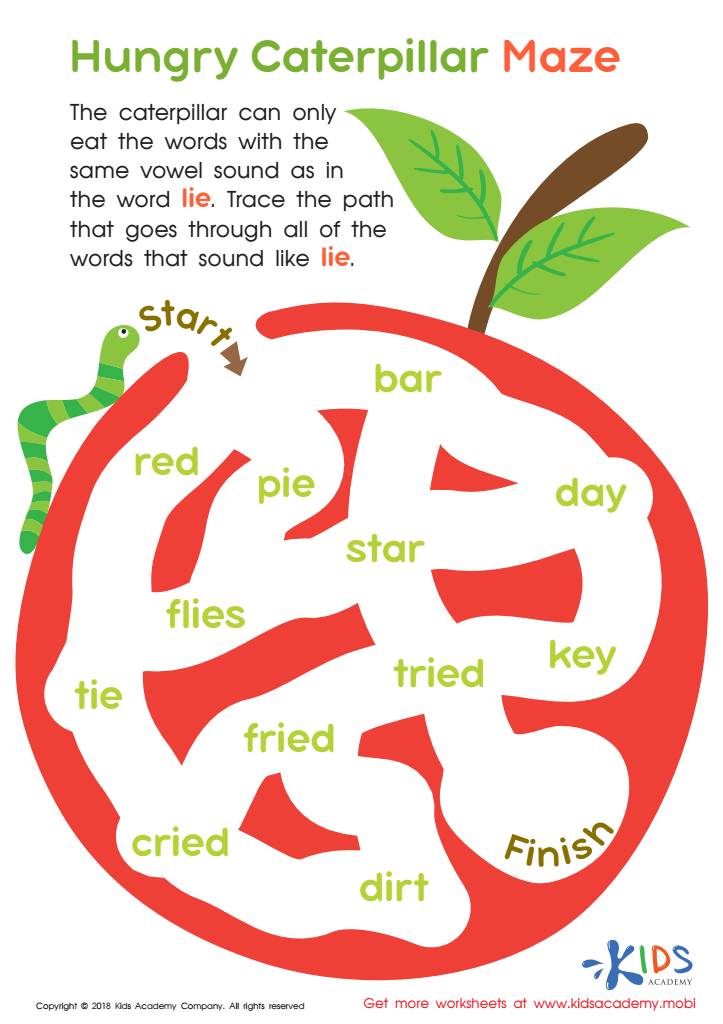

Hungry Caterpillar Maze Worksheet
Parents and teachers should prioritize developing problem-solving skills and vocabulary for children ages 3-7, as these foundational abilities significantly influence future learning and social interactions. Problem-solving skills empower young children to think critically and creatively. By learning how to approach and tackle challenges, they build resilience and self-confidence, essential traits for navigating life’s hurdles.
Moreover, a rich vocabulary is vital for effective communication. Children who possess an extensive vocabulary can express their thoughts and feelings more clearly, improving relationships with peers and adults. This communication skill aids in collaboration and enhances their ability to understand and engage with complex concepts.
Engaging in activities that enhance problem-solving and vocabulary, such as storytelling, puzzles, and play-based learning, not only makes learning enjoyable but also reinforces cognitive and linguistic growth. When parents and teachers work closely together to provide supportive environments that encourage exploration and expression, they create opportunities for children to connect ideas and learn analytical thinking.
In summary, focusing on problem-solving and vocabulary development equips young children with the essential tools they need for academic success and personal growth, laying a strong foundation for their future endeavors and lifelong learning.

 Assign to My Students
Assign to My Students













